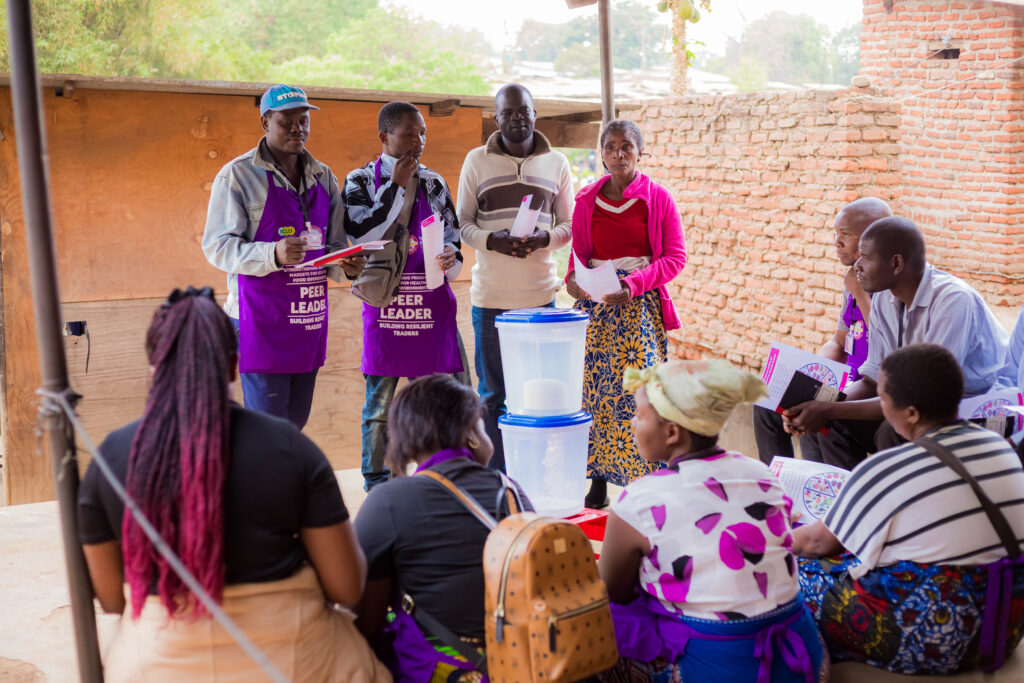
This week, NutriCare’s WASH team rolled out hands-on demonstrations on the use of ceramic water filters at Lizulu Market—a key activity under the Strengthening Fresh Food Markets for Healthier Food Environments project supported by GIZ, ICLEI Africa, and the Lilongwe City Council.
Why it Matters
Access to clean water remains one of Malawi’s greatest urban health challenges. Globally, over 771 million people still lack safe drinking water, with 489 million relying on unsafe sources such as open wells and surface water. In urban Malawi, poor water quality contributes to repeated outbreaks of diarrhoea and cholera, threatening both public health and market productivity.
The Demonstration
At Lizulu, NutriCare introduced low-cost ceramic water filters capable of purifying over 20 litres per day, removing nearly 100 percent of bacteria and parasites. Traders and peer leaders participated in live demos showing:
- How to set up, fill, and maintain the filters;
- The health benefits of using clean water for food preparation;
- How ceramic filters save time and money compared to boiling water or buying bottled water.
More than 150 vendors—mostly women—took part, testing filtered water and learning simple maintenance practices.
Measurable Impact
Early results show that traders using the filters report cleaner utensils, fewer complaints of stomach illness, and greater customer confidence in cooked food. Reducing fuel use for boiling water also cuts household costs and carbon emissions.
Scaling the Solution
NutriCare plans to expand demonstrations to four additional Lilongwe markets—Msungwi, Mchesi, Ngwenya, and Area 23—reaching over 900 beneficiaries in three months. The goal: equip every food stall with reliable clean-water access, directly supporting Malawi’s journey toward Zero Hunger and healthy urban food systems.
Together with city partners, NutriCare is proving that small innovations—like a simple ceramic filter—can create big change in market health, disease prevention, and economic resilience.
